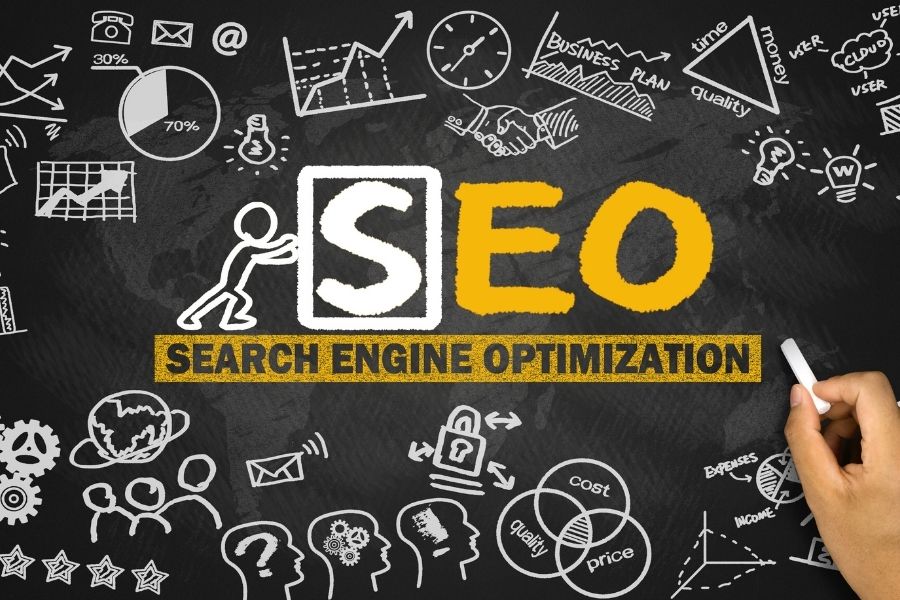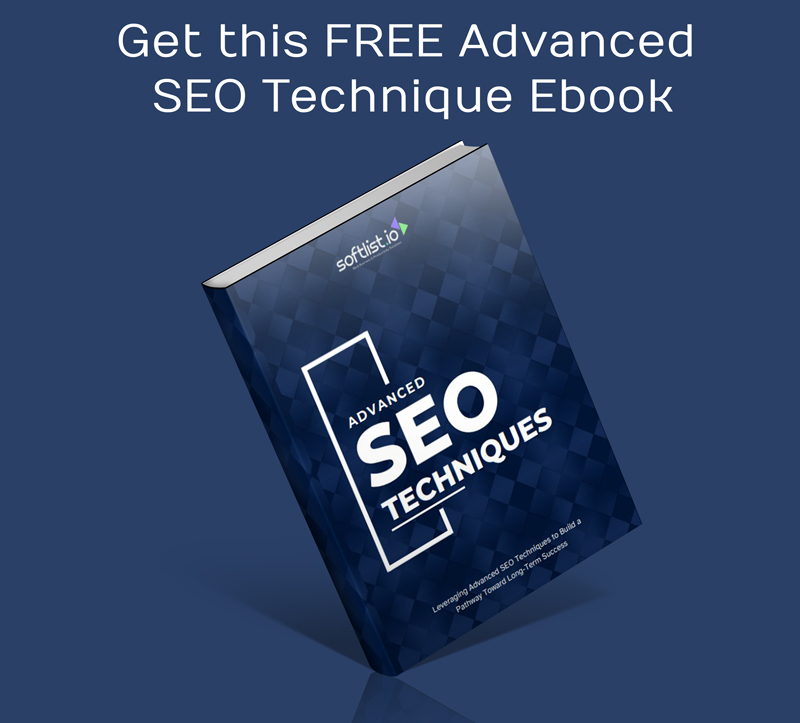Have you been having trouble getting people to see your content on the vast internet? You’re not by yourself. Many people who write content struggle with Search Engine Optimization (SEO), a field that is always changing.
This complete guide will answer all of your most-asked questions about SEO content optimization tools. It will give you the knowledge you need to be successful. Imagine that your content always ranks at the top of search engine results, bringing more people to your site and getting them to interact with it.
This isn’t just a dream; it’s totally possible if you know what to do. We’ll show you how to improve your information for people, not just search engines. These people could be your customers. Get ready to change how you do SEO, and your online profile will soar!
What is SEO Content Optimization?
Source: Canva Premium
For SEO, content optimization means changing a website’s text to rank better in search results. Keywords should be used that meet the wants of your audience. This plan improves how material, graphics, videos, and meta tags work so that people are more interested.
Good, useful, and educational material brings more free visitors to websites. For SEO content improvement to work, the content needs to be interesting, useful, and easy to read. Keeping a blog with original posts that are updated often can help your SEO.
Putting headings, subheadings, and bullet points in the text makes it easy to read and find. With internal and external links, your material can be seen as more trustworthy and useful. In today’s digital world, your site needs to load fast and work right on phones.
How Does SEO Content Optimization Impact Search Engine Rankings?
When you make content SEO-friendly, it moves up in search engine results. When search queries have focused keywords, they can find information more quickly. Bounce rates can be lowered by writing interesting content that keeps people reading. It can make them stay on the site longer, telling search engines it’s worth going to.
Adding new content to a website might get found more often and move up in the search results. Video and picture SEO needs to be done right. People may find your site through search results. When you order your content well, web crawlers can find and rank it better.
You can trust websites more when they have both internal and external links. Your ranking factors increase when you make your material better for users and optimize it for SEO. Many people look on their phones, so mobile SEO is very important. Ultimately, improving SEO material is an ongoing process that changes with the times and search engine algorithms.
What Are the Key Elements of SEO-Friendly Content?
Source: Canva Premium
Content that is good for SEO is valuable and straightforward to read. Start with keywords to help search engines understand the material and rank it. They should be simple to use and not full of “keyword stuff.” Also essential is high-quality, insightful, and exciting material.
This includes knowledge that is factual, well-researched, and interesting. Organizing content is also essential. Headings and subheadings make text easier to read and help search engines find it. Content that has both links is more reliable and valuable. Finally, your material must load quickly on mobile devices in today’s digital world.
What Are SEO Content Optimization Tools?
SEO content improvement tools are used to make web content rank higher in search engines. Most of the time, these tools start by researching keywords to find the best ones to target. They can look at your content to see how densely you use keywords to make sure you’re using them correctly and not too much. ‘
Many of these tools will tell you how to improve the organization of your content, for example, by using headers better. By checking for readability, they can also ensure that your content is accessible to many people. Some tools can improve pictures and other media, making the page’s SEO better.
Often, they have tools that can check your site for broken links and other technical problems that could hurt your SEO. These tools help you make material that is easy for people to read and search engines to find.
How Do SEO Tools Improve Content Quality?

Source: Canva Premium
SEO tools improve writing by giving you ideas and insights based on data. They help writers choose suitable themes to ensure the content is relevant to readers’ wants. These tools can check how easy it is to read text and offer changes that will make it easier for everyone to read.
They suggest better styles and titles to get people’s attention and organize information better. They show where the text could be cut down or increased to make it more transparent and powerful. Some SEO tools can find copied text to ensure the content is original.
They also edit photos and movies to improve the user experience and keep them interested. Lastly, these tools find and fix technical SEO problems. This ensures that the content is high-quality and search engine-friendly.
Why Are SEO Tools Essential for Content Marketing?
For many reasons, SEO tools are essential for content marketing. They give you phrase data that you can use to make your content more relevant to your readers. You can produce content that ranks higher in search results if you use these tools to find keywords.
They give you tools to check how well content is doing and suggest changes. With SEO, you can make content more accessible to read and more interesting so that more people can find and use it. They see technology problems on your site that could hurt SEO and fix them.
You can use these tools to make plans by looking at your competitors and finding material that works well for businesses. SEO tools make writing more accessible, which helps you reach the right people more quickly and easily.
What Are the Key Features to Look for in SEO Content Tools?

Source: Canva Premium
SEO writing tools should have several significant advantages. It would help if you did keyword research to find out what words and phrases your audience wants. The device should check how well your writing uses keywords and follows SEO best practices.
To quickly find your way around and use the tool’s features, it must be simple. To find out how well your content did, keep an eye on its ranks, traffic, and conversations. Good tools let you do competitor study, which enables you to see how your content stacks up against others in the same field.
Titles, meta descriptions, and pictures can improve with on-page SEO tips. For the last part, look for technologies that offer regular updates and help to keep up with how SEO is constantly changing.
How to Choose the Best SEO Tool for Your Business?
Choosing the best SEO tool for your business requires careful consideration of several factors. First, identify your specific needs and goals, such as keyword research, content optimization, or performance tracking. Consider your budget, as SEO tools come at various prices and features.
Selecting a user-friendly tool that matches your team’s skill level is essential. Check for integration capabilities, ensuring the device can work seamlessly with your existing software and platforms. Review reviews and testimonials to gauge the tool’s effectiveness and customer satisfaction.
Consider the tool’s scalability – can it grow with your business and adapt to changing needs? Lastly, take advantage of free trials or demos to test the tool’s functionality and suitability for your business before committing.
Free vs. Paid SEO Tools: Which Should You Choose?

Source: Canva Premium
Consider your business goals and budget when choosing between free and paid SEO tools. Free tools are a great place to start for new users and small businesses with little money. They often offer simple features like keyword research and website analytics that are necessary to get started with SEO.
However, free tools may be better when it comes to data accuracy, analysis depth, and technical help. On the other hand, paid SEO tools have more advanced features, more data, and are updated more often. They usually include an in-depth study on keywords, an analysis of the competition, and more information about how well SEO works.
Businesses that want to change their online profile may find it worth the money to buy a paid tool. Ultimately, your choice will rely on how much you want to spend and how much SEO work you need to do.
How to Get Started with SEO Content Optimization Tools?
You need to take a few essential steps to start using SEO content improvement tools. First, write down your main SEO goals, like getting more people to visit your website or moving up in the search results. Look into different tools and pick one that fits your budget and aids you in reaching your goals.
Start by using the tutorials or tips that come with the tool to get used to its interface and features. Do a keyword study first to find words and phrases related to your content. Use the tool to look at the material you already have and find places where it could be better.
Focus on both on-page and off-page performance as you make the suggested changes. Use the tool’s analytics to monitor your progress regularly and change your plan based on your learning.
How to Maximize the Impact of SEO Tools on Your Content?
Before you can get the most out of SEO tools for your writing, you need to know precisely what they can do. You can use the keyword research tool to find high-value keywords related to your material. The tool lets you look at your rivals’ plans and learn from their good and bad points.
Check your website often with the tool to see if there are any SEO problems or ways to improve it. Follow the on-page optimization suggestions for meta descriptions, title tags, and content layout.
Make sure the content is easy to read and enjoyable by using the tool’s content analysis option. Track your progress with the tool’s data to see how your SEO work pays off. Using the data and insights the tool gives you, keep your plan updated and better.
What Common Mistakes to Avoid When Using SEO Tools?

Source: Canva Premium
When using SEO tools to optimize content, it’s essential to avoid certain common mistakes to ensure maximum efficacy. One such mistake is an overemphasis on the target keyword, which can lead to keyword stuffing and negatively impact readability.
It’s crucial to balance keyword usage while maintaining natural and engaging content. Additionally, neglecting the quality of backlinks is a common error. Quality backlinks are vital for boosting organic traffic, and it’s important to focus on building reliable and relevant backlinks rather than just increasing their quantity.
Another mistake is failing to align content with searcher’s intent. Creating content that accurately addresses the needs and questions of your audience is key to attracting and retaining organic traffic. Ignoring these aspects can diminish the effectiveness of your SEO efforts, leading to suboptimal results.
What Are the Latest Trends in SEO Content Tools?
The latest trends in SEO content tools, such as Semrush, are focusing increasingly on enhancing organic search performance and understanding Google search algorithms. These tools are now equipped with advanced analytics to accurately gauge how content will perform in SERPs (Search Engine Results Pages).
They also emphasize the importance of tailoring content to the target audience’s needs and search behaviors, ensuring that content resonates well with the intended users.
Additionally, there’s a growing trend in optimizing landing pages specifically for Google search criteria, ensuring they not only attract the target audience but also rank higher in search results. This holistic approach to SEO, encompassing everything from keyword optimization to user experience, is pivotal in the evolving landscape of digital marketing and content strategy.
How Can AI and Machine Learning Enhance SEO Tools?
Artificial intelligence (AI) and machine learning have changed SEO tools, making it easier to get to the top of Google’s search results. For example, AI-powered tools can now come up with more exact and varied keyword ideas that are more in line with what people are looking for.
This new technology helps with copywriting by suggesting phrases and words that are relevant to the situation. This makes the content much more relevant and interesting. Also, AI systems are better at figuring out how hard a keyword is, which makes it easier to see how likely it is that a site will rank for certain terms. This is especially helpful when the content doesn’t easily match up with keywords that are very competitive.
Also, tools like Semrush’s site audit tool now have AI built in to give more information about how well a website is doing and find problems that could hurt its ranking. This is an example: With AI, we can guess how changes to SEO tactics might affect future rankings, which wasn’t possible with old-fashioned analytics. By adding AI and machine learning to SEO tools, search engine optimization is becoming easier to understand, faster, and more focused on results.
Integrating SEO Tools with Other Marketing Software: How and Why?
Integrating SEO tools with other marketing software can significantly enhance the efficiency and effectiveness of digital marketing strategies. Here’s an example: by combining SEO tools that analyze keyword difficulty and the chance of ranking with content management systems, marketers can optimize content for SEO right from the initial stages of content creation.
This integration ensures that when you’re writing a blog post or developing a content idea, the software provides real-time insights into the best keywords and SEO practices. This seamless process not only increases the likelihood of landing on the first page of search results but also streamlines the entire content creation workflow.
Additionally, this integration allows for a more cohesive strategy, where every piece of content is aligned with overall marketing goals, ensuring a unified brand message and a more impactful online presence. Integrating SEO tools with other marketing software is not just about improving individual tasks; it’s about creating a synergistic approach that amplifies the overall effectiveness of your marketing efforts.
How to Measure the Effectiveness of SEO Tools?
Measuring the effectiveness of SEO tools is crucial in validating that your SEO strategy is on track and that your efforts in content optimization are yielding the desired outcomes. The best way to evaluate this is by observing how well they optimize your content for SEO.
A guide to content optimization can help you understand the process, enabling you to produce great content that aligns with search intent and meets the standards for quality content. Tools that offer a comprehensive content overview can significantly impact the visibility of your content in search results, including the achievement of featured snippets.
Another key performance indicator is an increase in search traffic, signaling that the content resonates with the audience and the optimization is effective. By tracking these metrics, you can gauge the success of your tools and refine your SEO approach for even better results.
What Metrics Should You Track When Using SEO Tools?
When leveraging SEO tools as part of your content marketing strategy, it’s essential to track specific metrics to gauge the success of your efforts. Firstly, monitor the type of content that has the best chance of ranking high in SEO.
This involves analyzing the effectiveness of your SEO copywriting in various content pieces, and observing which styles and topics yield the highest SEO ranking. An optimizer tool can help identify successful content formats and themes. Also, it’s important to track the overall reach and engagement of each content piece, as this reflects the resonance of your content with the target audience.
Tracking where and how your audience finds your content can offer valuable insights into improving your content strategy. These metrics are critical in evaluating the impact of your SEO efforts and guiding your approach toward achieving greater content marketing success.
Final Thoughts
In conclusion, learning how to optimize material for search engines changes as the internet does. This post took the most challenging parts of SEO and answered the most popular questions. Remember that the best SEO tactics are to use the right tools, stay updated on algorithm changes, and write good content.
As we’ve seen, good SEO can help your online profile and get people to interact with you usefully. Keep in mind that SEO is an ongoing process. Find out how AI can help you make content that will help your digital plan.
Check out our post about the pros and cons of SEO tools that can help you optimize your content and get more information. As internet marketing changes constantly, let’s use these tools and methods to stay ahead.
Visit our blog to learn more about SEO Content Tools.







